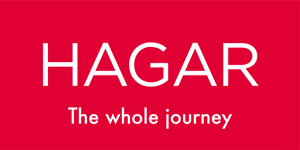While we seek out the best bargains that we can lay our hands on and are proud of the deals we get, do we really know what is the cost of these deals?
 Source: Human Rights Watch
Source: Human Rights Watch
The shirt or dress you picked out at a sale, made from cotton, could have been picked by a child or a teacher under hazardous and unsanitary conditions as the government of Uzbekistan forces their citizens to work in the fields and threatens to withhold welfare payments or suspend students if they refuse. The fifth largest exporter of cotton in the world, the cotton industry in Uzbekistan generates a quarter of the country’s GDP from one million tonnes of cotton fiber! Imagine how light that cotton feels on you and the weight of that on those forced to pick cotton.
 The world leader in production and export of cocoa beans used in the manufacture of chocolate, the Ivory Coast may be home to some of the worst forms of child labour. To meet the growing demand for cheap cocoa, cocoa farmers often resort to child labour to keep their prices competitive. Surrounded by intense poverty, most kids begin working at a young age to help support their families. Many of the kids labouring on the farms are between 12-16 years old, and while some stay for a few months, many end up working through adulthood. They may never see their families again, or after many years, if ever. Giant brands like Hershey’s, Cadbury, Mars and Nestle buy Ivorian cocoa, so just figure how bittersweet that chocolate tastes right now. (Source: Thomson Reuters Foundation)
The world leader in production and export of cocoa beans used in the manufacture of chocolate, the Ivory Coast may be home to some of the worst forms of child labour. To meet the growing demand for cheap cocoa, cocoa farmers often resort to child labour to keep their prices competitive. Surrounded by intense poverty, most kids begin working at a young age to help support their families. Many of the kids labouring on the farms are between 12-16 years old, and while some stay for a few months, many end up working through adulthood. They may never see their families again, or after many years, if ever. Giant brands like Hershey’s, Cadbury, Mars and Nestle buy Ivorian cocoa, so just figure how bittersweet that chocolate tastes right now. (Source: Thomson Reuters Foundation)
Cobalt is a crucial mineral in the production of batteries for cellphones and electric vehicles. Half of cobalt’s production comes from the war-torn northwest corner of the Democratic Republic of the Congo, a country with severe human rights violations, dangerous mining operations and terrible child labour conditions. Apple has been working at getting their act together through an expanded audit scope which identified supplier violations, and has taken remedial steps against the supplier and to prevent similar violations.
At HAGAR, we are committed to speak out against the human rights atrocities and abuses that children and labourers have to endure for the benefit of another. We work together with governments and businesses to bring about change in legislation, industry best practices and ethical standards, social reforms, and improvements in aftercare for victims. We walk the whole journey of recovery with survivors, until they are in good stead and empowered with skills to start a whole new life, and be less susceptible to exploitation and mercenary businessmen who pay no heed to their wellbeing.
A common defining trait is the bottomline, the need to stay competitive, resulting in the neglect of safety, and the oppression of labourers in such labour-intensive industries. While we may each cry out for justice and equity, are we ourselves ready to bear some of these costs? The deals are cheap because the cost was borne by someone else.
Remember, what cost us a fraction cost them their whole life. Stop to take a second look at the label and check out the brand’s policy statement on their website. All it takes is less than 2 minutes and you can decide to put that item back on the shelf or complete the purchase. As consumers, we do have the powers to influence ethical practices and make things right for others.
Learn about the companies and brands that address forced labour, slavery and human trafficking in their supply chains, and start choosing slavery-free products with this slave-free buying guide.
Better yet, take a step further in making change by empowering child survivors of trafficking and exploitation with a gift of protection and recovery. Their lives will turn around because of your decision today. Thank you for making a difference.
Empower A Survivor
Donate Now
Provide them with the necessary protection, literacy and skills to start a whole new life.
Empower a Survivor
Donate Now
Provide them with the necessary protection, literacy and skills to start a whole new life.
